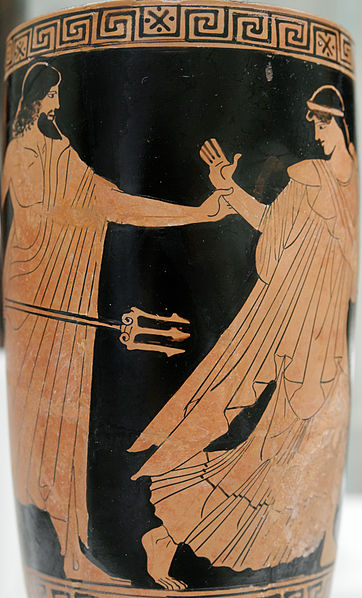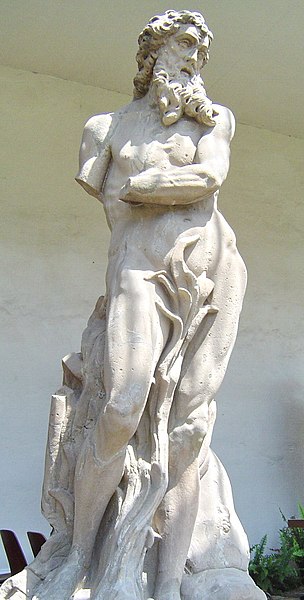Erechtheus in Greek mythology was a king of Athens, the founder of the polis and, in his role as god, attached to Poseidon, as "Poseidon Erechtheus". The name Erichthonius is carried by a son of Erechtheus, but Plutarch conflated the two names in the myth of the begetting of Erechtheus.
A possible sculpture of Erechtheus
Poseidon is one of the Twelve Olympians in ancient Greek religion and mythology, presiding over the sea, storms, earthquakes and horses. He was the protector of seafarers and the guardian of many Hellenic cities and colonies. In pre-Olympian Bronze Age Greece, Poseidon was venerated as a chief deity at Pylos and Thebes, with the cult title "earth shaker"; in the myths of isolated Arcadia, he is related to Demeter and Persephone and was venerated as a horse, and as a god of the waters. Poseidon maintained both associations among most Greeks: he was regarded as the tamer or father of horses, who, with a strike of his trident, created springs. His Roman equivalent is Neptune.
The Poseidon of Melos, a statue of Poseidon found in Milos in 1877
Poseidon greeting Theseus (on the right). Detail, Attic red-figured calyx-krater by Syriscos Painter, 450-500BC from Agrigento. BnF Museum (Cabinet des médailles), Paris
Poseidon pursuing a woman, probably by Achilleus painter, 480-450BC. Metropolitan Museum of Art, Manhattan NY
Statue of Poseidon in Germany by Johann David Räntz and Lorenz Wilhelm Räntz (1760).





